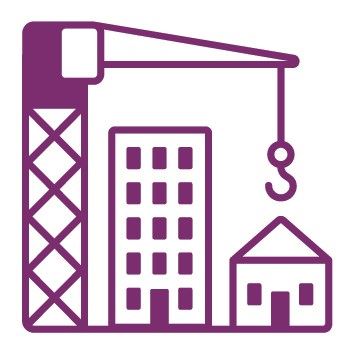
As Irish businesses prepare to return to work following the COVID-19 crisis, we consider how health and safety laws might apply to commercial real estate.
Obligations under Safety, Health and Welfare at Work Act 2005
Tenants who are also employers owe specific duties to their employees under the Safety, Health and Welfare at Work Act 2005 (as amended). They also have a general duty to ensure that the workplace is safe and not a health hazard. The majority of commercial properties also function as workplaces and, therefore, these duties must be observed by the tenants of shopping centres, offices, restaurants, pubs and hotels.
Landlords will also have obligations under the 2005 Act that include limiting the risk of contamination. A landlord may also be required to restrict public access to their premises, to sanitize and evacuate the premises, and to provide information to the relevant authorities.
 Cleaning and sanitising obligations – who pays?
Cleaning and sanitising obligations – who pays?
COVID-19 is transmitted through human contact and limiting its spread requires exceptional health and safety intervention.
In many instances a landlord will not have the level of control required to impose strict hygiene regulations. Leases should be reviewed to ascertain whether there is any obligation on the part of a landlord to provide additional cleaning or maintenance services. Where there are additional cleaning obligations, landlords should check whether the costs can be recovered from tenants. This will depend on the wording of the service charge clause.
Common law obligations
Beyond the new emergency legislation and the existing health and safety legislation, it is important to bear in mind that everyone owes a common law duty of care not to cause harm to any other person. This duty may be greater where the relationship is closer and where the harm is more foreseeable. As owners and occupiers of commercial premises, landlords and tenants may be held to owe a duty of care to prevent the spread of COVID-19 on their premises.
The following is a non-exhaustive list of measures that could be taken by landlords or tenants where they are also employers:
-
Increasing the frequency and the intensity of cleaning schedules with a particular focus on surfaces which are commonly handled
-
Providing leaflets and regular updates in relation to the virus and its effect on the premises
-
Providing gloves, anti-bacterial hand sanitiser / wipes for customers and employees upon entry of the premises
-
Restricting the number of employees/customers on the premises at any given time
-
Re-organising the layout of the workplace to create more space between individuals
-
Encouraging customers to engage with online delivery services where available and where access to the premises is non-essential, and
-
Displaying official COVID-19 health and safety notices on the premises in plain view
Conclusion
Extraordinary circumstances such as these highlight the importance of co-operation and timely communication between landlords and tenants where issues arise. The potential for compromise should be explored.
For more information on successfully navigating COVID-19 related challenges and mitigating their impact on your business, contact a member of our Real Estate team.


